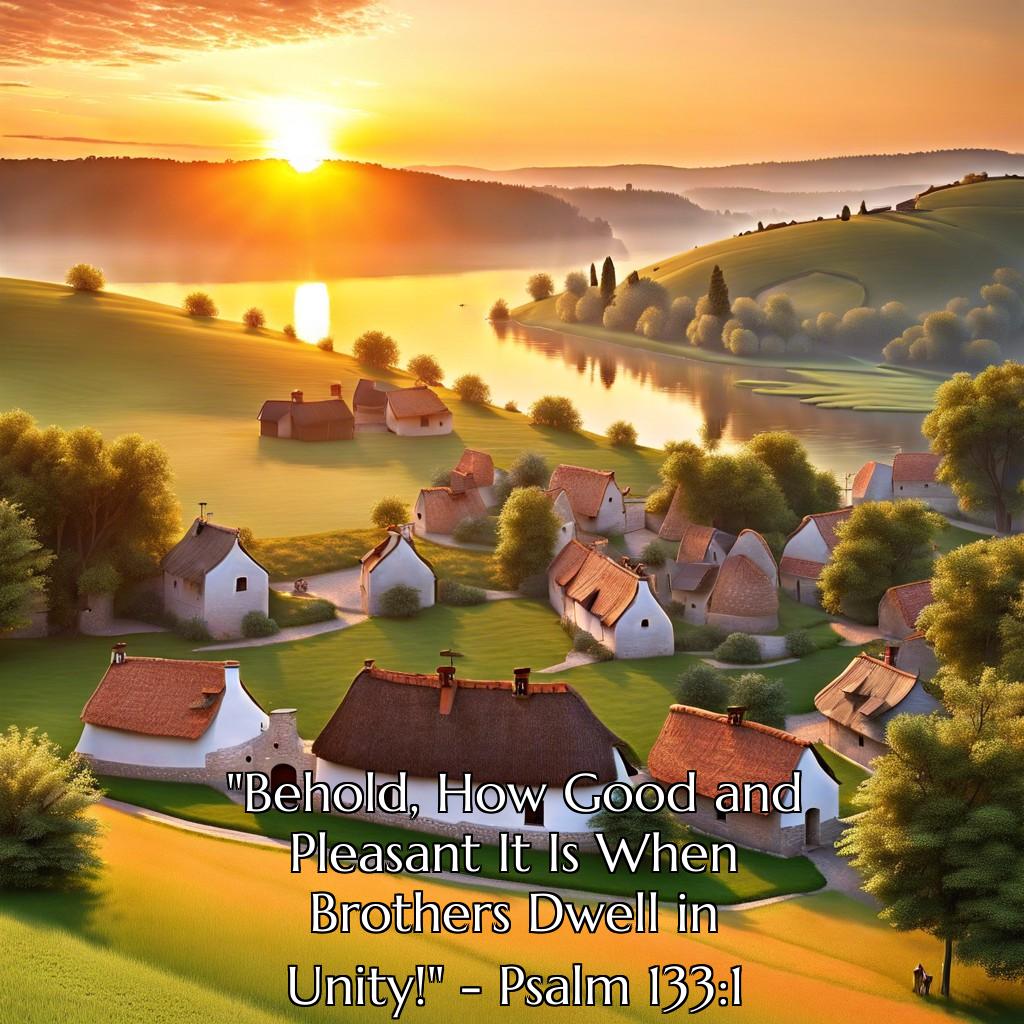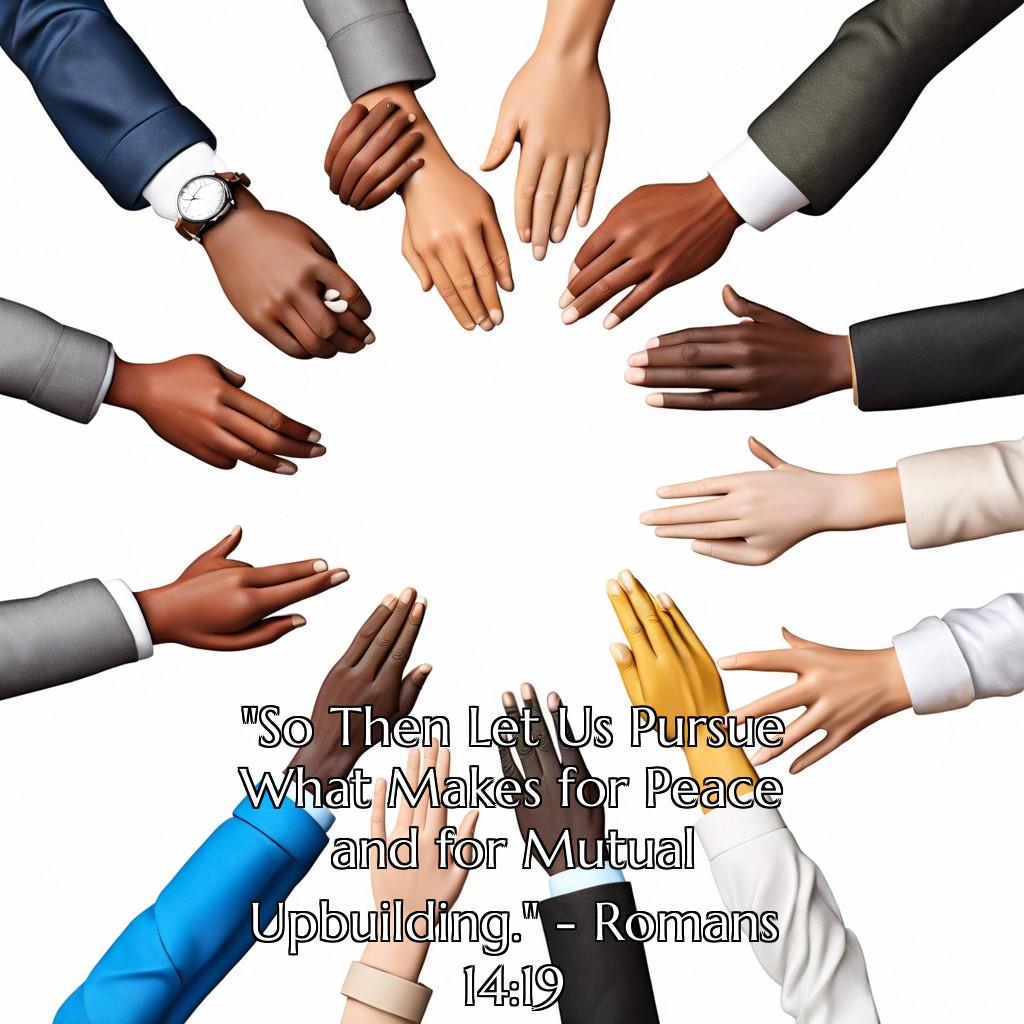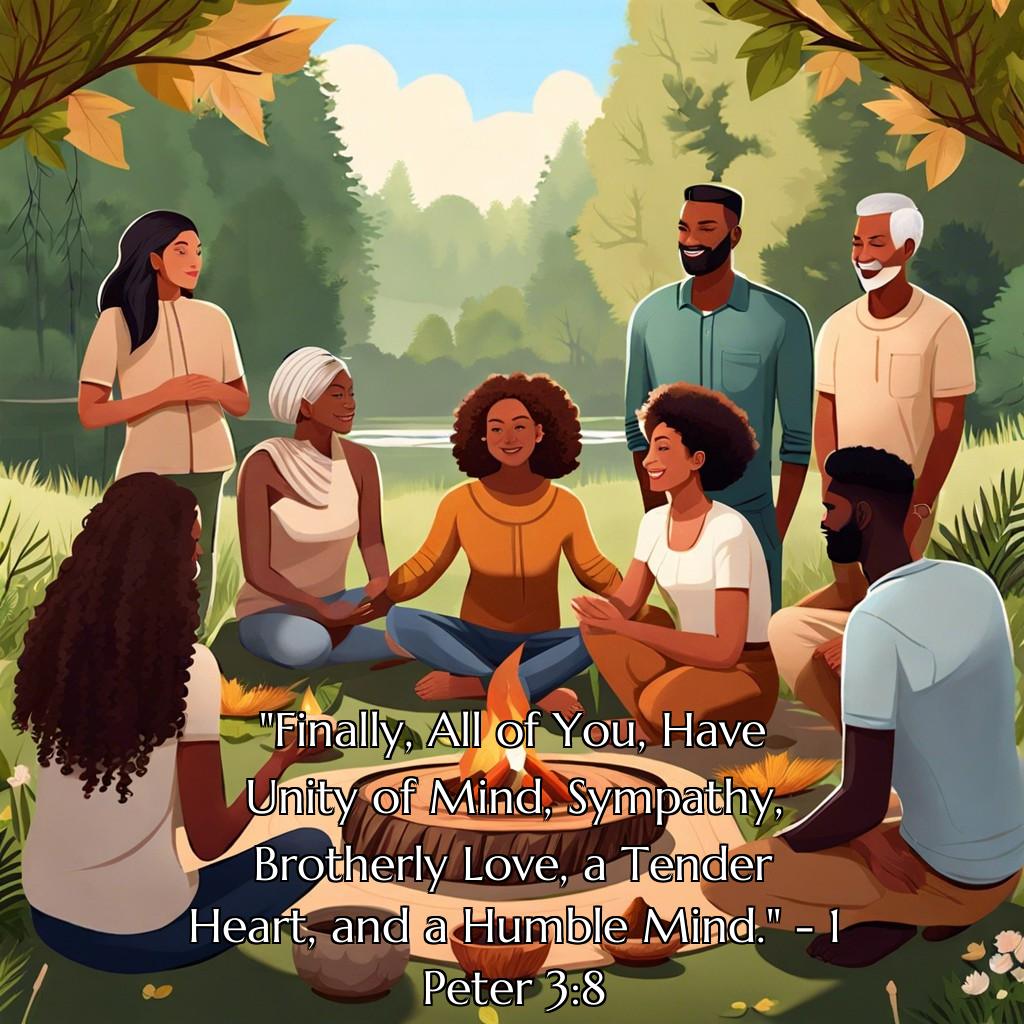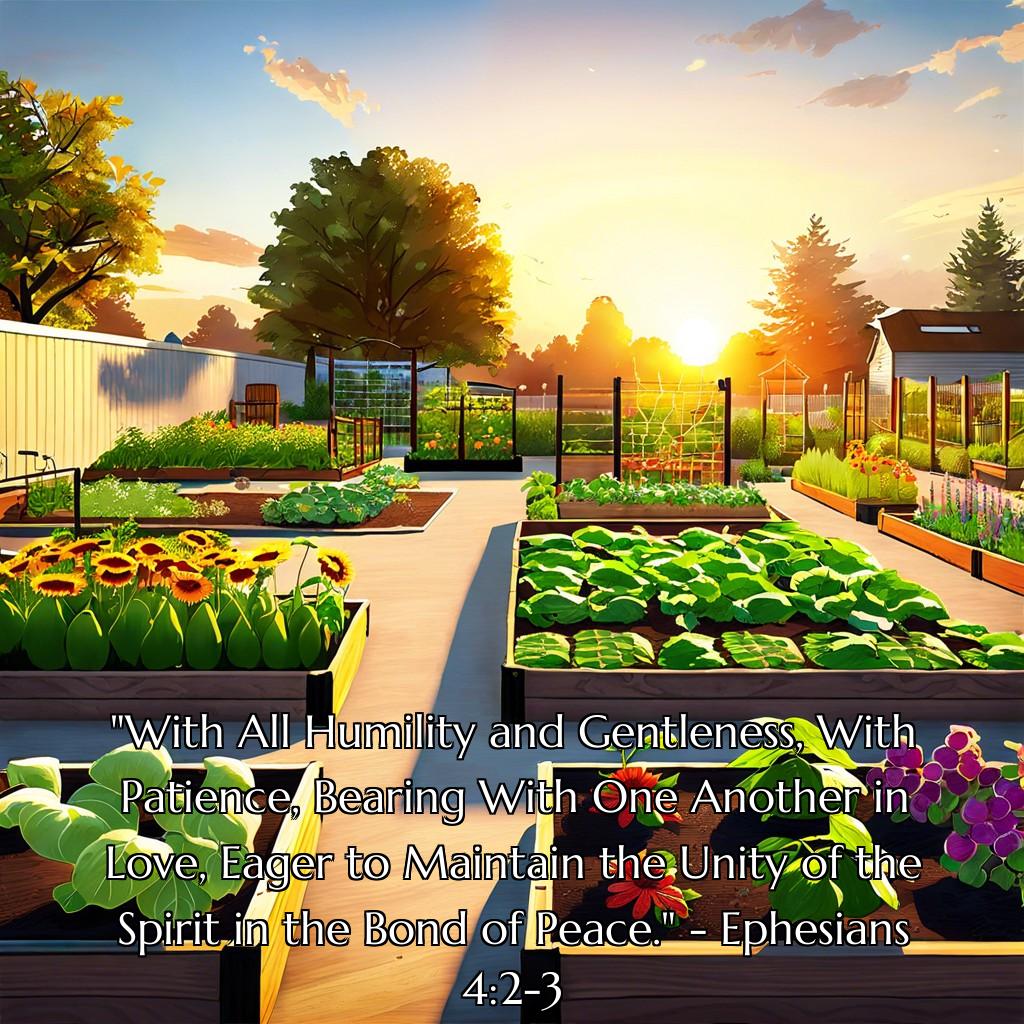This article explains the meaning of 10 bible verses that emphasize the importance and power of unity.
Unity is a profound theme in the Bible, embodying peace, harmony, and collective strength. Discovering what the scriptures say about unity can guide us to foster stronger, more loving communities. Through these carefully chosen bible verses, we’ll uncover the divine wisdom that encourages us to pursue unity and love in our daily lives. Dive in to explore and understand these powerful messages that promote togetherness and mutual support.
“Behold, How Good and Pleasant It Is When Brothers Dwell in Unity!” – Psalm 133:1

This verse shines a light on the sheer joy and goodness that comes from unity. It’s not just about coexistence; it’s about thriving together.
The phrase “good and pleasant” underscores that unity has intrinsic value. It’s fundamentally beneficial and enhances our collective experience.
“Brothers dwell” indicates close and sustained relationships. It’s about living in proximity, physically or in spirit, in harmony.
Importantly, unity here isn’t just conflict-free existence. It’s an active pursuit of common ground, shared goals, and mutual respect.
Unity brings peace and nourishes spiritual growth. It reflects God’s design for human relationships. We flourish when we stand together in love and purpose.
“So Then Let Us Pursue What Makes for Peace and for Mutual Upbuilding.” – Romans 14:19

Romans 14:19 points us toward a life of peace and mutual support. This verse emphasizes actions that foster harmony. Pursuing peace involves active efforts to resolve conflicts amicably, valuing relationships over winning arguments.
Mutual upbuilding implies encouraging and supporting one another. This could mean offering a kind word, helping out in times of need, or simply being there for someone. It’s about making choices that contribute to the spiritual growth of everyone involved.
The call to pursue these virtues highlights that unity isn’t passive. It requires effort and intentionality. Prioritizing peace and mutual support aligns us with God’s greater purpose of creating a harmonious community.
“I Appeal to You, Brothers, By the Name of Our Lord Jesus Christ, That All of You Agree, and That There Be No Divisions Among You, but That You Be United in the Same Mind and the Same Judgment.” – 1 Corinthians 1:10

Paul’s plea to the Corinthians centers on unity and cohesion within the church. He emphasizes agreement and the absence of divisions. This reflects Jesus’ desire for His followers to be one, just as He and the Father are one. Unity doesn’t mean uniformity but coming together with a common goal and mindset.
- Points to consider:
- Common Purpose: Focus on the mission of spreading Christ’s teachings.
- Shared Beliefs: Build consensus on core doctrines.
- Mutual Respect: Handle disagreements with grace.
- Unified Leadership: Follow spiritual leaders who endorse unity.
- Team Spirit: Encourage each other in faith and service.
These elements help foster a community where love and faith flourish, minimizing discord.
“Finally, All of You, Have Unity of Mind, Sympathy, Brotherly Love, a Tender Heart, and a Humble Mind.” – 1 Peter 3:8

Peter calls for unity, and he links it to a few key qualities:
Unity of mind: Sharing common goals and beliefs strengthens our bond. It doesn’t mean we agree on everything, but it means we seek to understand and support each other.
Sympathy: Empathy helps us connect on a deeper level. When we understand others’ feelings, we build a community that cares.
Brotherly love: Treat each other as family. Genuine care and concern create a nurturing environment.
A tender heart: Being compassionate and sensitive to others’ needs can soften hearts and foster togetherness.
A humble mind: Humility allows us to put others first and value their perspectives, which naturally leads to unity.
“There Is One Body and One Spirit—just As You Were Called to the One Hope That Belongs to Your Call.” – Ephesians 4:4

Paul’s letter to the Ephesians emphasizes the profound unity shared among Christians. He conveys that just as there is one body of believers and one Holy Spirit, there is also a singular hope tied to their divine calling.
This verse highlights several key concepts:
Unity in Diversity: Different members make up one body, each playing unique roles while contributing to a single purpose.
Shared Spirit: The Holy Spirit indwells all believers, providing guidance and fostering unity among them.
Common Hope: The calling to a shared future in Christ links all believers, providing a unified direction and purpose.
The essence is simple yet powerful: our faith connects us as one, despite our varied backgrounds and gifts. This interconnectedness is both spiritual and practical, urging us to live harmoniously.
“For Where Two or Three Are Gathered in My Name, There Am I Among Them.” – Matthew 18:20

This verse underscores the profound simplicity and power of communal prayer. When believers come together in Jesus’ name, even in small numbers, His presence is assured.
Unity in Prayer: Collective prayer has a unique strength. It’s about believers aligning their hearts and intentions with God’s will together.
Christ’s Presence: The promise that Jesus is among them provides comfort and assurance. This presence is a reminder of His constant support and involvement in our lives.
Spiritual Solidarity: Gathering in His name fosters a sense of belonging and spiritual unity, reinforcing the bond within the Christian community.
Empowerment: Knowing that Christ stands with them, believers are empowered and encouraged in their faith journey.
Therefore, in any gathering, whether small or large, believers can trust in the palpable presence and power of Jesus.
“And Above All These Put On Love, Which Binds Everything Together in Perfect Harmony.” – Colossians 3:14

Love is described in Colossians as the essential element that ties everything together. This verse highlights that love isn’t just an additional virtue; it is foundational and transformative.
Love creates harmony. It acts as the glue that holds diverse individuals together, fostering unity in the community.
It promotes selflessness. Love encourages us to look beyond our own needs and consider others, which is vital for maintaining unity.
Love supports forgiveness. It empowers us to forgive and move past grievances, reducing conflicts and strengthening relationships.
It encourages empathy. By putting on love, we learn to feel for others and share in their joys and sorrows, deepening our connections.
In essence, love is the driving force that ensures all other virtues function effectively within a united body.
“Complete My Joy By Being of the Same Mind, Having the Same Love, Being in Full Accord and of One Mind.” – Philippians 2:2

Being of the same mind means aligning our thoughts and goals with one another, driven by Christ-like humility. It’s about putting aside personal agendas and striving for a common purpose rooted in God’s love.
Having the same love emphasizes a collective nurturing of love that mirrors the unconditional love Christ has for us. It’s a love that seeks the good of others, fosters empathy, and strengthens community bonds.
Full accord and one mind reflect a complete and harmonious unity. Unity isn’t just superficial agreement but a deep-seated connection that transcends differences. Practical ways to cultivate this include active listening, collaborative efforts, and empathetic communication.
When we embrace these principles, joy naturally follows. Fulfillment and peace are found in shared purpose and mutual respect, reinforcing the unity God desires for His people.
“With All Humility and Gentleness, With Patience, Bearing With One Another in Love, Eager to Maintain the Unity of the Spirit in the Bond of Peace.” – Ephesians 4:2-3

This verse reminds believers that unity requires specific attitudes and behaviors. Humility keeps pride in check, encouraging us to place others’ needs before our own. Gentleness, or meekness, indicates strength under control, leading to considerate and kind interactions.
Patience is crucial, especially in moments of frustration, inviting us to pause and respond thoughtfully rather than react impulsively. Bearing with one another in love means accepting people’s flaws and differences, striving for understanding and compassion.
Lastly, being eager to maintain the unity of the Spirit suggests active participation in fostering peace. It involves intentional efforts to avoid divisions and to promote harmony within the community.





